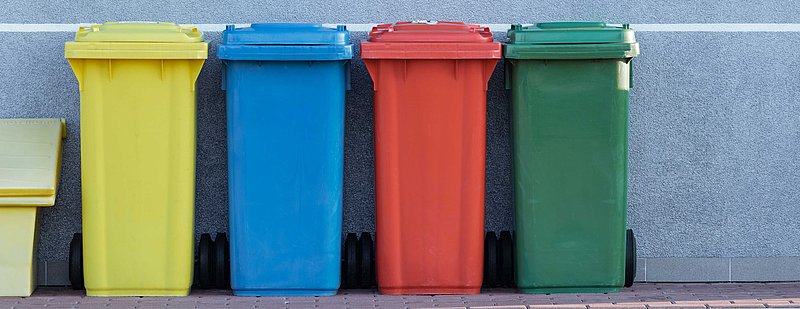Biodegradable plastics became more and more popular. The missing degradability of almost all types of virgin plastics are not a secret anymore and the world is looking for alternatives. Besides reduce, reduce and recycle, the idea to replace the materials made out of common plastics with biodegradable plastic instead became more and more popular. However, the entire value chain of the biodegradable plastic industry is still lacking: standards for tests that examine biodegradability, but also specifications and reliable certification systems. All these uncertainties and discussions about biodegradable plastics confuse end-consumers. Which bin does the new fancy bio-packaging belong in? In addition, the whole 'bioplastic hype' can make environmental pollution even worse, since it is said to be degraded – so one can just throw it directly e.g. the next forest, river or lake?
Biodegradable Plastics Have a Role to Play within a Circular Economy
This is the conclusion of the report ‘Biodegradability of plastics in the open environment’ from SAPEA – a Horizin2020 Project which is also part of the European Commission's Scientific Advice.
Despite all the ambiguities and problems that the biodegradable plastic sector still faces, these plastics could be an environmentally friendly alternative for many existing products through appropriate framework conditions such as labelling and a regulated waste system.
In December 2020, the Science Advice for Policy by European Academies (SAPEA) has published the report "Biodegradability of plastics in the open environment" addressing exactly these challenges within biodegradable plastic topic. The SAPEA project is supported by the EU Horizon2020 programme and involves five academy networks. Additionally, the project is part of the European Commission's Scientific Advice Mechanism and provides independent scientific advice to the European Commission in collaboration with the Group of Chief Scientific Advisors. This supports the European Commission in its decision-making. The experts in the SAPEA working group come from different disciplines such as engineering, humanities, medicine, or natural and social sciences from all over Europe to work as an interdisciplinary and international team to provide scientific evidence on specific questions related to the biodegradable plastic issues.
The questions that were addressed in the report concern exactly the challenges occurring in reality: missing definitions of biodegradable plastics, possible applications of biodegradable plastics compared to conventional plastics, communication about biodegradable plastics and most importantly: which criteria make biodegradable plastics beneficial for the environment compared to conventional plastics?
The report's executive summary:
The report concludes that 'biodegradable plastics can play a role in a circular economy based on resource efficiency principles'
Especially in applications that could quickly or unavoidably enter the environment, such as films in agricultural, biodegradable plastics bring a clear advantage. But also in applications where it is difficult to remove the plastic from organic material, biodegradable plastics can play a major role. As many positive features as biodegradable plastics have, the report nevertheless makes clear: replacing conventional plastics completely is not seen as a viable strategy in the fight against plastic pollution of our environment. Thus, biodegradable plastics ‘should neither be considered as a universal alternative to improved waste management practices, nor as an answer to inappropriate disposal, in particular littering’.
For advantages over conventional plastics to prevail, one thing is needed above all: an appropriate end-of-life scenario for biodegradable plastics. This requires the development of standards and work on a disposal infrastructure to ensure proper management in line with the principles of resource efficiency in the circular economy. To help policy makers, the report suggests a number of options to help choose possible pathways.
Walter Poortinga, one of the working group members of the SAPEA report on biodegradable plastics commented on the report in a Youtube Video as following:
His main take-home message of the report is:
‘Biodegradable plastics may have a very specific role to play in reducing plastic pollution – in particular where it is very difficult or expensive to remove materials from the open environment. In most cases however, it is much, much better to reduce the amount of plastics we’re using and to promote recycling and reuse.’
Indeed, for us, the readers, the general public, the consumers - it is still the best option to reduce, to rethink, to reuse and to promote recycling.
We are excited to see how this rapidly evolving and high-tech field will change in the coming years and keep on writing!



